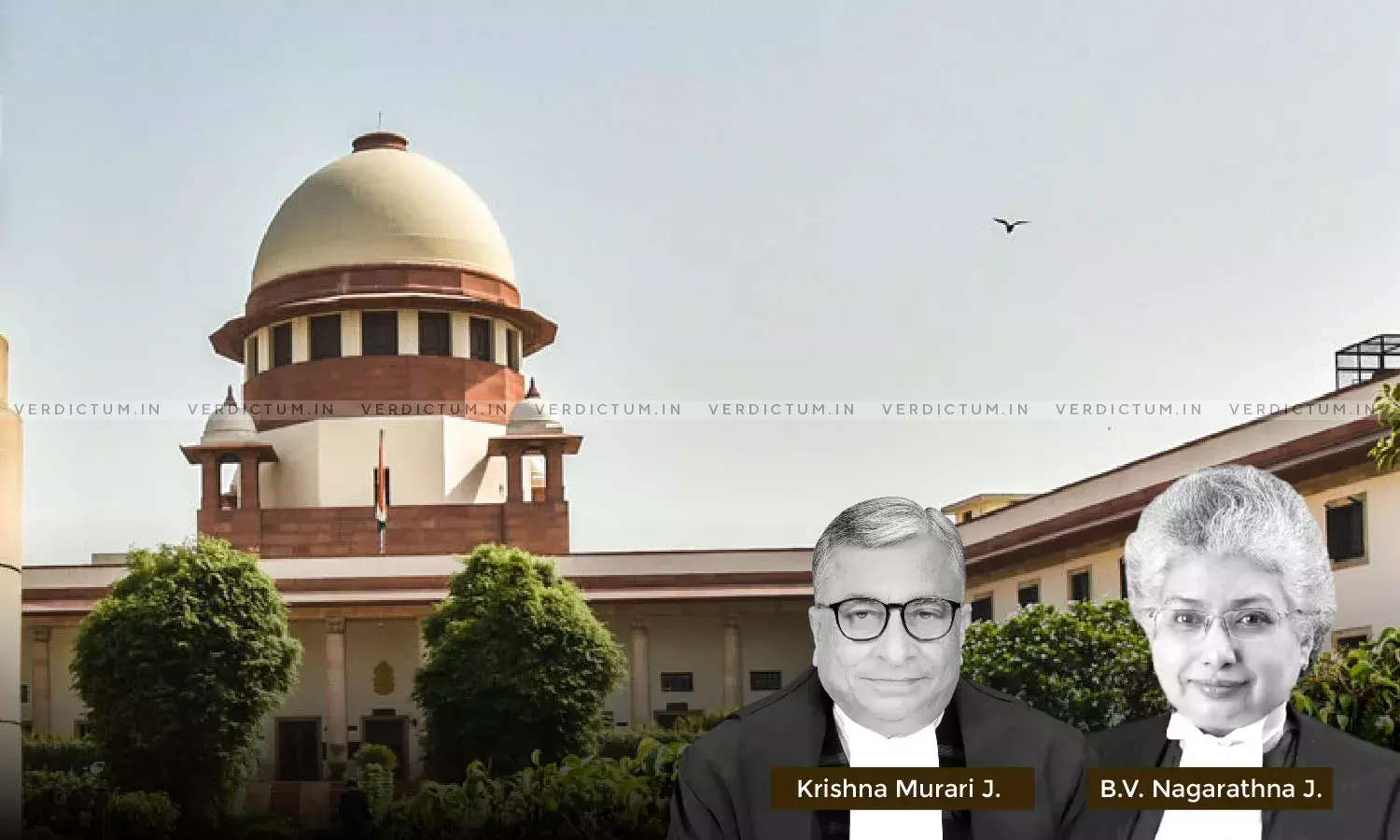Claim For Compassionate Appointment May Not Be Entertained After Considerable Lapse Of Time- SC Affirms
A Supreme Court Bench of Justice Krishna Murari and Justice BV Nagarathna has held that a claim for compassionate appointment may not be entertained after lapse of a considerable period of time since the death of the government employee. The Bench further clarified that it would be of no avail to grant compassionate appointment to the dependants of the deceased employee, after the crisis which arose on account of death of a bread-winner, has been overcome.
Senior Counsel Rakesh Dwivedi and Counsel Madhumita Bhattacharjee appeared for the Appellant-State, while Counsel Indradeep Pal appeared for the Respondent-Writ Petitioners.
In this case, the Respondent-Writ Petitioners were the heirs of the employees of municipalities who had died in harness, and the heirs were claiming compassionate appointment to posts in the concerned municipalities. The question in these appeals was to the entitlement of such persons to be considered for compassionate appointment.
The Apex Court noted that "The object underlying a provision for grant of compassionate employment is to enable the family of the deceased employee to tide over the sudden crisis due to the death of the bread-earner which has left the family in penury and without any means of livelihood. Out of pure humanitarian consideration and having regard to the fact that unless some source of livelihood is provided, the family would not be in a position to make both ends meet, a provision is made for giving gainful appointment to one of the dependants of the deceased who may be eligible for such appointment. Having regard to such an object, it would be of no avail to grant compassionate appointment to the dependants of the deceased employee, after the crisis which arose on account of death of a bread-winner, has been overcome." In furtherance, the Court observed that the financial condition of the family of the deceased, at the time of the death of the deceased, is the primary consideration that ought to guide the authorities’ decision in the matter.
Subsequently, the Court was of the considered view that "Since compassionate appointment is not a vested right and the same is relative to the financial condition and hardship faced by the dependents of the deceased government employee as a consequence of his death, a claim for compassionate appointment may not be entertained after lapse of a considerable period of time since the death of the government employee."
The Court placed reliance on the cases of Moon Mills Ltd. vs. M. R. Meher, President, Industrial Court, Bombay and State of M.P. vs. Nandlal Jaiswal to observe that the Respondents-Writ Petitioners did nothing to pursue their matter for a period of 10 years. In that context, it was observed that "the Respondent-Writ Petitioners delayed approaching the High Court seeking a writ in the nature of a mandamus against the authorities of the State. In fact, such a prolonged delay in approaching the High Court, may even be regarded as a waiver of a remedy, as discernible by the conduct of the Respondents-Writ Petitioners. Such a delay would disentitle the Respondents-Writ Petitioners to the discretionary relief under Article 226 of the Constitution."
It was held that the sense of immediacy had been lost in the matter, which was attributed to both parties. In that context, it was said that "entertaining a claim which was made in 2005-2006, in the year 2023, would be of no avail, because admittedly, the Respondents-Writ Petitioners have been able to eke out a living even though they did not successfully get appointed to the services of the Municipality on compassionate grounds. Hence, we think that this is therefore not fit cases to direct that the claim of the Respondents-Writ Petitioners for appointments on compassionate grounds, be considered or entertained."
The Apex Court also issued a strong word of reproach towards the authorities of the Appellant-State about the manner in which the applications for compassionate appointment of hundreds of dependents were dealt with. In that context, it was said that "Delay on the part of the authorities of the State to decide claims for compassionate appointment would no doubt frustrate the very object of a scheme of compassionate appointment. Government officials are to act with a sense of utmost proactiveness and immediacy while deciding claims of compassionate appointment so as to ensure that the wholesome object of such a scheme is fulfilled."
Accordingly, the appeals were allowed, and the impugned judgment of the High Court was set aside.
Cause Title: The State of West Bengal v. Debabrata Tiwari & Ors. Etc. Etc.
Click here to read/download the Judgment




